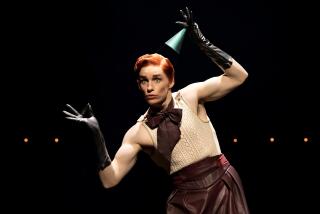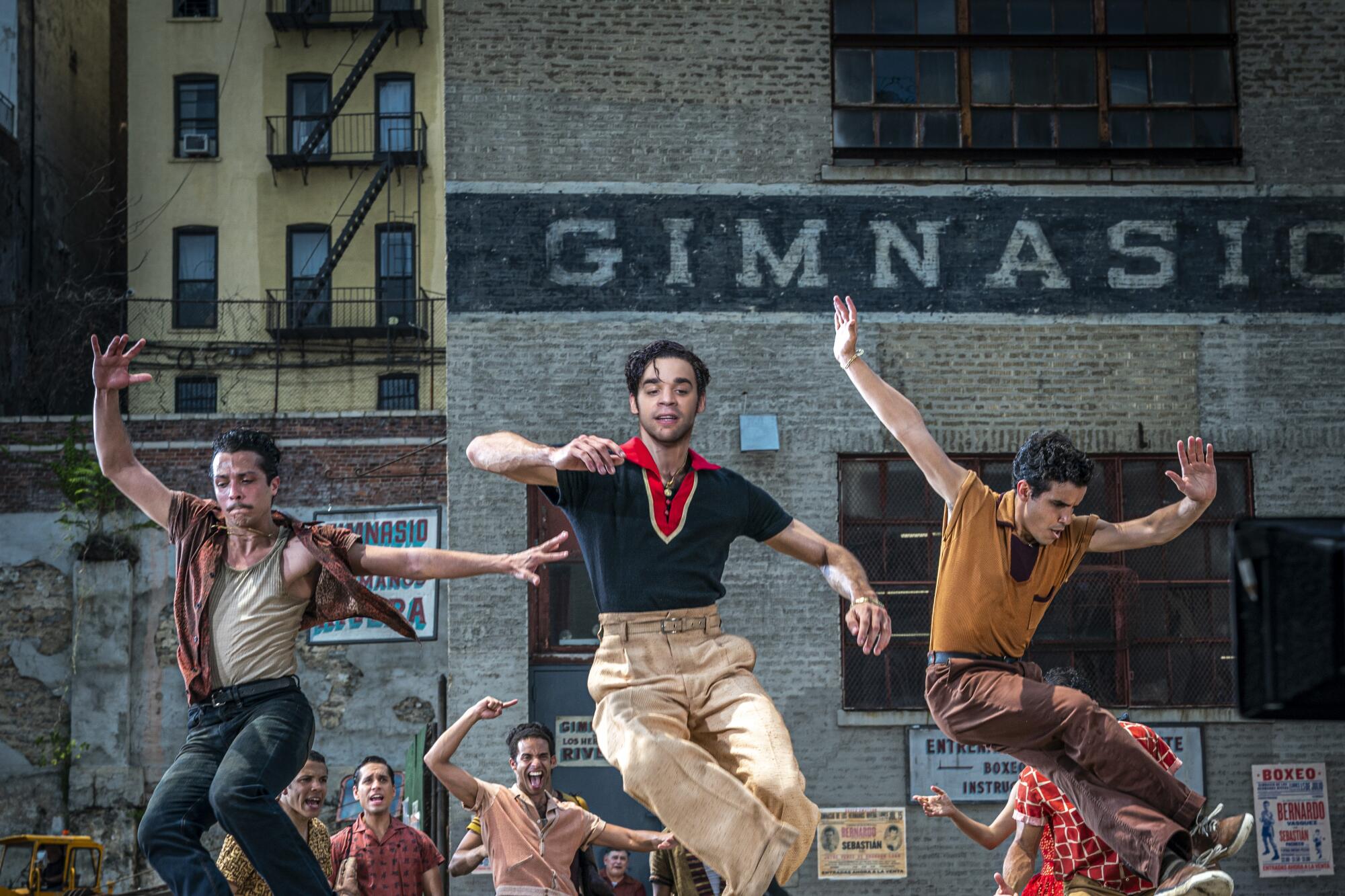
It’s a time of plenty for movie musicals, with Steven Spielberg and Tony Kushner’s take on “West Side Story,” Lin-Manuel Miranda’s “Tick, Tick ... Boom!” and the anticipated performance of Peter Dinklage in “Cyrano” arriving before the end of the year. Also coming: the animated musicals “Encanto” from Disney and Universal’s “Sing 2.” Who better than film critic Justin Chang and theater critic Charles McNulty to explore what this abundance says about the state of the movie musical?
CHARLES McNULTY: The movie musical seems to be making another of its perennial comebacks. I’m wondering if there’s anything different about this recent resurgence. I finally caught up with Leos Carax’s “Annette,” which you proposed might be seen as a “corrosive remake of that much sunnier showbiz romance, ‘La La Land.’” Although darker and more febrile, “Annette” does seem indebted to the dreamlike fluidity of Damien Chazelle’s 2016 blockbuster. Has space opened for more maverick sensibilities?
JUSTIN CHANG: I certainly hope so, Charlie, though there are maverick sensibilities and then there is Carax’s sensibility, which feels like it’s on another planet. It’s a funny thing about “Annette”: Just about every person I know who disliked it — and I know many! — also couldn’t help but express a measure of gratitude for its existence. There are certainly a lot of reasons why Carax’s movie might not work for a viewer: its narrative longueurs; its bitter, tortured emotions; its songs by Ron and Russell Mael, which many found too repetitive (they are, although I also found the best of them irresistibly catchy). As a doomed showbiz romance set in a curdled fairy-tale vision of Los Angeles, it really is a kind of anti-“La La Land,” which is to say an anti-crowdpleaser. And love it or hate it, that runs counter to everything we commonly assume musicals should be.
“La La Land” was an ebullient riff on Fred Astaire, Ginger Rogers and Jacques Demy; “Annette” has darker, more dissonant inspirations, “A Star Is Born” and Stephen Sondheim being just two of them. It behaves in ways that few mainstream movies do, and surely breaks more musical conventions than it follows. But it also has a go-for-broke artistic conviction that’s hard not to admire; it’s refreshing to see a movie that doesn’t give a damn whether we like it or not.
McNULTY: I’m still processing what I think of “Annette.” I was seduced by its brooding sensibility, but by the end, like one of the victims of Adam Driver’s character, I felt like I was drowning in it. In its obsessive and studied movement, this movie musical may have more in common with experimental opera, something you might see at Long Beach Opera, the Industry or REDCAT, than with the kind of Broadway schlock on tour everywhere. What intrigues me about “Annette” is the way the music of Sparks informs the cinematic architecture. I didn’t find the psychopathology of Driver’s Henry McHenry to be particularly resonant. Perhaps because I never found his character convincing as a performance artist, I remained detached from Carax’s inquiry into the peculiar narcissism of artists in love. But I was invigorated by the film’s fusion of music and moving image.
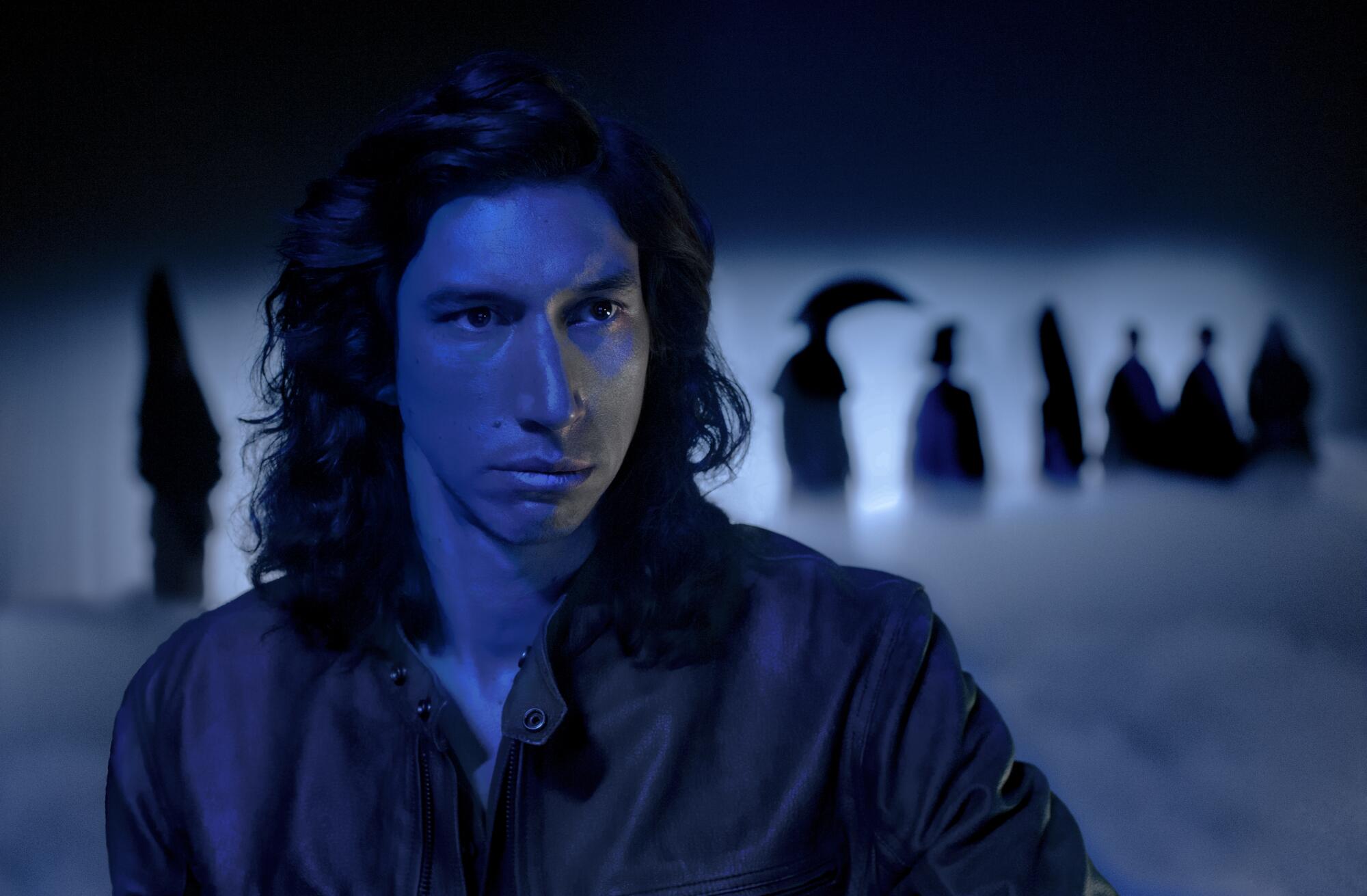
CHANG: I was quite taken with it myself, and while I’d agree that Driver doesn’t exactly convince as a stand-up comedian — any more than Marion Cotillard, with her lovely, lilting voice, really convinces as an opera soprano — there’s an emotional brutality to their relationships and its ghastly aftermath that I do find horribly persuasive. Probably to a fault, as it does risk turning the movie into just another scream into the toxically masculine void. Still, I’ve certainly heard less melodious screams; months later, I still find myself playing the Sparks brothers’ earworm “So May We Start?” whenever I need a pick-me-up. “We Love Each Other So Much” is a hypnotically romantic downer for the ages. And the devil-may-care originality of “Annette” looks and sounds ever more like a welcome outlier in a season stuffed with so many stage-to-screen adaptations, some of which we’ve already seen (“In the Heights,” “Dear Evan Hansen”) and some of which are still on the horizon (“Tick, Tick … Boom!,” “West Side Story”).
Charlie, from your wry opening line about “perennial comebacks,” I can’t help but sense — and perhaps share — a certain skepticism about this latest burst of optimism about the state of the movie musical. It feels like every so often Hollywood throws musical lovers a bone, usually timed for awards season, and with the odd exception (a “Moulin Rouge!” here, a “La La Land” or a “Greatest Showman” there), the vast majority are deluxe big-screen transplants of proven Broadway hits like “Chicago,” “Dreamgirls,” “Mamma Mia!,” “Sweeney Todd,” “Les Misérables” and “Into the Woods.” (I’ll be kind and not mention “Cats” — oh shoot, I just did.) Meanwhile, in a separate musical subgenre of its own, Disney continues to turn self-cannibalization into an art form with its endless and highly dubious stream of live-action remakes including “Beauty and the Beast,” “Aladdin” and that dead-eyed singing safari “The Lion King.”
It saddens me a bit that movie musicals have lately been in the recycling business, which suggests how little the form seems to speak — or sing — to American filmmakers on its own glorious, often whimsical terms. When the COVID-19 pandemic set in, a lot of us rewatched and reminisced about the great musicals of the 1920s and ’30s, like “Top Hat,” which did so much to lift audience spirits amid the gloom of the Depression years. What would our nearest equivalent of “Top Hat” be today? Sadly, it probably isn’t “In the Heights,” the burst of summery cinematic joy that was supposed to welcome audiences back to theaters in June, but which for various reasons — moviegoer reluctance during a far-from-over pandemic, the movie’s simultaneous appearance on HBO Max — proved a commercial disappointment.
The ones coming up this year may well prove more lucrative, though far more importantly, I certainly hold out hope that they’re good, maybe even great. Charlie, I’m curious what you think of this recent cinematic resurgence so far, and about the particular challenges of turning stagecraft into movie magic. What did you make of the industry’s latest attempts to keep the form alive?
McNULTY: I’m a devout agnostic when it comes to the movie musical, but I have a confession to make, Justin. Unlike many of my fellow theater critics, I wasn’t drawn to the theater through the musical. I wasn’t a performer in high school. I can’t sing and only think I can dance. I was an obsessive reader who developed early crushes on Shakespeare, Chekhov, Ibsen and Tennessee Williams. And then my mind was blown by seeing actors perform their plays on stage and screen. The musical for me was an acquired taste. “Grease,” my first Broadway musical, was a traumatic experience. My parents took me when I was 7. Too young to appreciate what I was experiencing, I was morally aghast that this extremely racy show was making my saintly mother laugh uproariously. I jumped out of my seat, ran screaming down the aisle and into an usher who stopped me dead in my tracks. My father promised it was the last show I would ever see. (I guess I proved him wrong!)
It wasn’t until my best friend, a musical theater evangelist who attended a performing arts high school in New York, took me to see the Lincoln Center Theater revival of “Anything Goes” with Patti LuPone in 1988 that I was able to transcend my history and savor this glorious art form. I’ve been making up for lost time ever since. Movie musicals have been a crucial part of my education. But when musicals I love are made into films, my expectations are tempered by the knowledge of how difficult it is to move between mediums.
When the translation from stage to screen works, it’s magic. Most of the time, I’m happy to settle for intermittent magic. “In the Heights,” the musical that announced to the world the prodigious talent of Lin-Manuel Miranda, has a sunny, sentimental appeal that came through my television. The big question for me is how a director will make spontaneous eruptions of singing and dancing seem credible, which is to say stylistically coherent. I thought Jon M. Chu found the answer in the vibrancy of Washington Heights. The neighborhood seems perpetually on the brink of a block party, which made it an especially enjoyable summer release. I’m not sure how to evaluate the film’s commercial performance, given that it pursued a bifurcated path. But I do know that most of my friends have seen it more than once on HBO, where it’s available any hour of the day.

CHANG: Give me a second, Charlie, while I try to stop marveling at the memory of your 7-year-old self running screaming down the aisle from “Grease” — a hell of an origin story for a theater critic. Personally I wish that my 36-year-old self had had the nerve to run screaming out of the cinema during “Cats” (sorry, mentioned it again). Talk about a movie in which the appeal of the original didn’t translate! In stark contrast to “In the Heights,” which benefits enormously from the heightened, more tangible sense of place that a big screen can provide. Chu can certainly stage and shoot the hell out of a number; he has a visual dynamism that’s been in evidence since his “Step Up” movies (and part of me wishes that his “Crazy Rich Asians,” much as I liked it, had been a full-blown musical). I do wish some of the editing on “In the Heights” had been less cut-cut-cutty, in that distractingly frenzied fashion that seems endemic to most studio movies these days, action movies and comedies included.
I’m glad you raised the question of credibility, how a film director eases a 21st century audience into a song-and-dance form often dismissed as creaky or out-of-date. My belief is that it is neither of those things, and that the less a director apologizes for making us watch people burst into song and dance, the better. It’s one of the reasons I’ve never been a fan of, say, Rob Marshall’s Oscar-winning “Chicago,” whose entire cinematic conceit — don’t worry, those numbers aren’t really happening! They’re taking place inside Roxie’s head! — has always smacked of embarrassment, even shame, about the form it’s so busily trying to update. But that’s not to say that there aren’t technical and artistic problems to solve in translating a work from one medium to the next; of course there are. I was particularly impressed with how you addressed those problems in your review of “Dear Evan Hansen,” a widely panned adaptation of a Tony-winning smash that you gave a fairer shake than some critics did. Has it been disappointing to see that movie so summarily rejected?
McNULTY: First, let me say I share your lack of enthusiasm for Marshall’s “Chicago,” which Hollywoodized an innovative Kander & Ebb concept musical in an attempt to resurrect some bygone golden age. Nothing leaves me as numb as determined glitz. And I agree that a musical must establish its own aesthetic logic without apology to rational etiquette. We may think we’re living in a purely realistic drama but our inner lives are belting à la Ethel Merman.
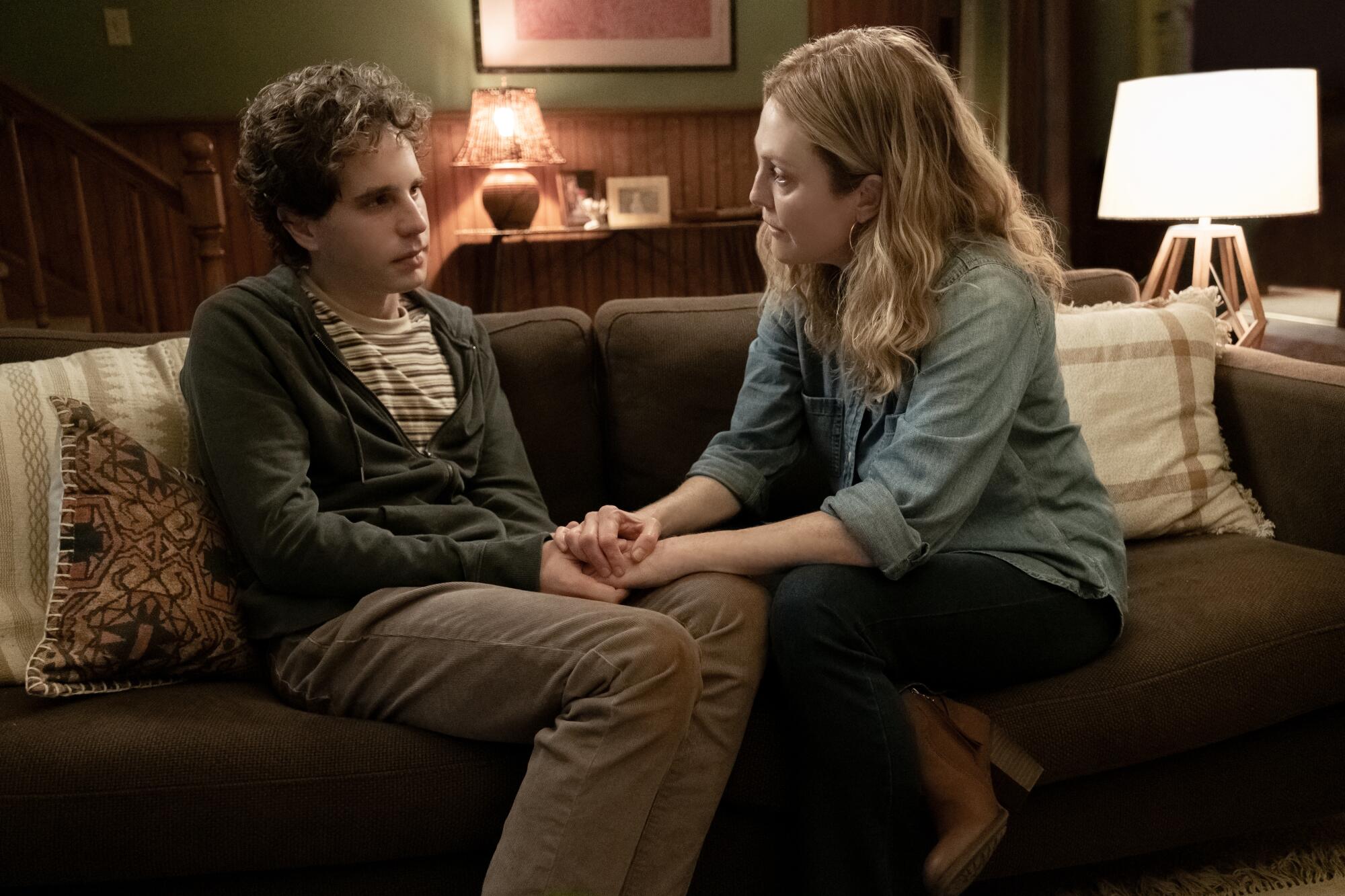
As for “Dear Evan Hansen,” it is true that I was one of the few who wrote a non-condemnatory movie review. But I have no particular investment in the work’s success or failure. I was aware of the negative reaction after the film opened at the Toronto International Film Festival. The biting remarks about Ben Platt being a little long in the tooth to play a teenager again were all over Twitter. I went to the screening assuming that I was in for a disaster. The film has obvious problems, but I found the critical reaction to be often obtuse when it wasn’t simply bullying. Imagine a sympathetic protagonist with questionable morality! Someone better warn these caviling critics about Hamlet. It wasn’t that long ago that we‘d mourn the way Tony-winning theater performers were routinely overlooked for Hollywood eye candy when their shows were brought to the screen. For me the issue wasn’t that Platt was too old to play Evan Hansen. It was that Stephen Chbosky, the film’s director, who did a superb job of making this high school world terrifyingly real, couldn’t figure out how to shoot a performance that had originated in a different medium.
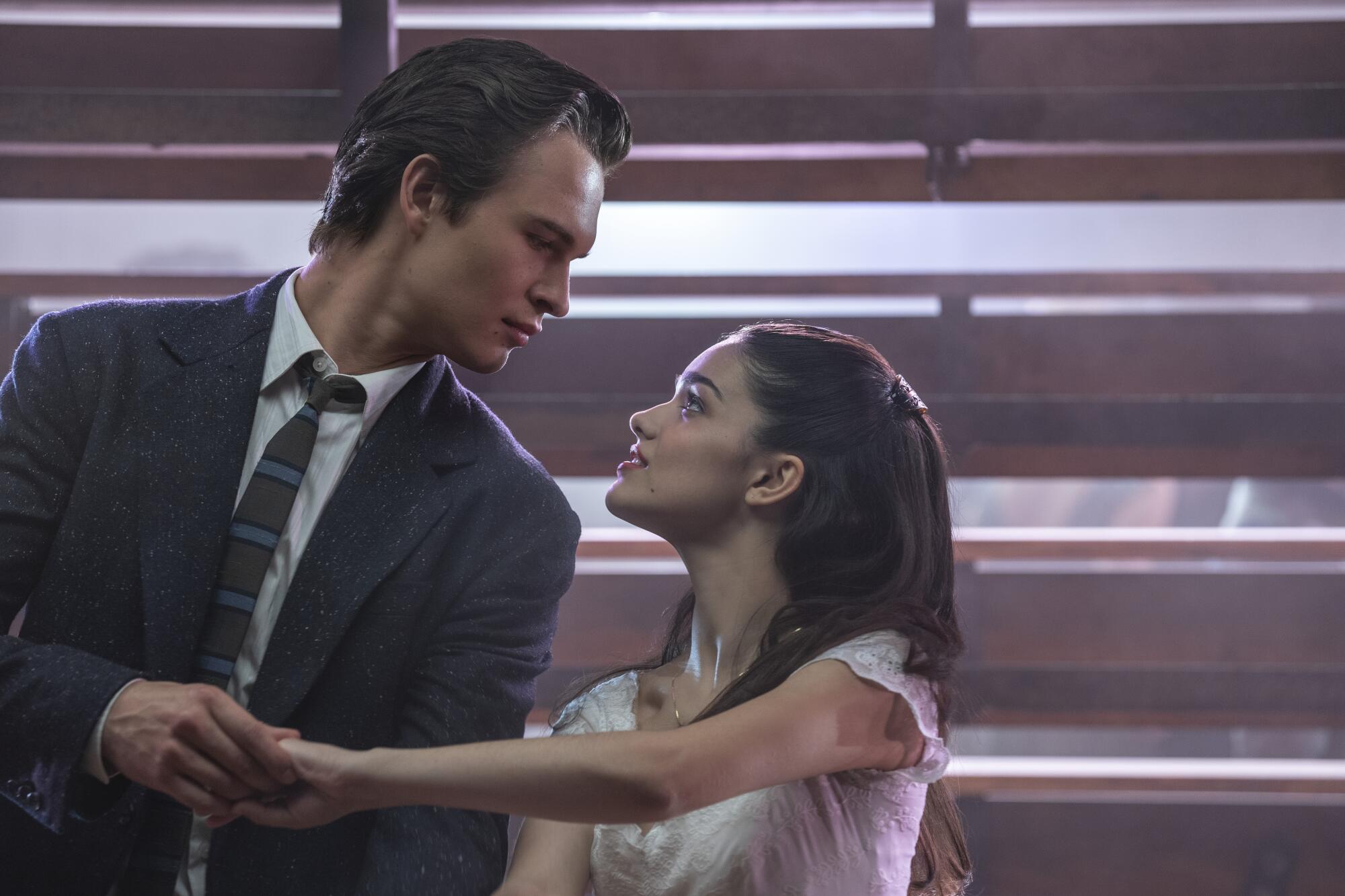
Movie musicals are a perilous hybrid, which is perhaps why I breathe a sigh of relief when the decision is made to film a stage performance instead of an adaptation. “Hamilton,” which came out last year on Disney+ when the theaters were engulfed in darkness, showed just how much theatrical excitement could be transmitted in a live capture. My nostalgia for live performance certainly played a role in my good opinion. But I found the experience of “Come From Away” on Apple TV+ more emotionally satisfying than the national tour production that came to the Ahmanson Theatre in 2018. Both films were served by being directed by their stage directors. (Note how tactfully I’m avoiding “Diana: The Musical,” the recent Netflix debacle.) As a film critic, do you see the live recording approach as an artistically valid alternative or is it more of a way of documenting and disseminating, not to say cashing in on, a Broadway hit?
CHANG: I think it can absolutely be both, as “Hamilton” more than proved. I was pleasantly surprised by the nimbleness of Thomas Kail’s stage and screen direction, which so generously and self-effacingly served the material. The sustained length of the individual shots, the unfussy intelligence of the camera coverage, the attempt to really immerse us, as best it could, in a stage environment — it felt as though Kail and his collaborators were trying to re-create a specific experience as scrupulously as possible, rather than trying to trump it or inflate it into something bigger and flashier. It made me grateful that this was the “Hamilton” movie we got; a full-blown adaptation or reimagining for the screen certainly would have had its virtues too, though I imagine it would’ve been saddled with a starrier, vocally inferior cast.
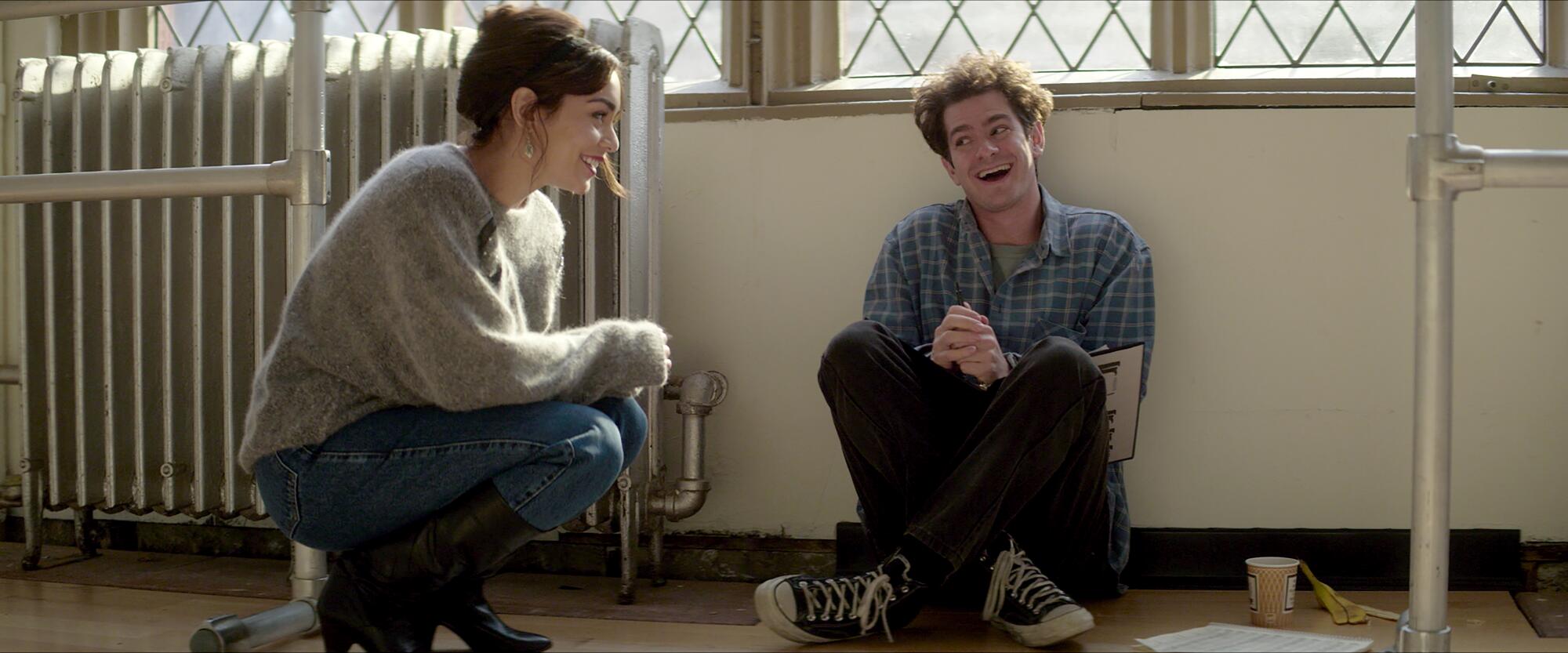
Speaking of Lin-Manuel Miranda: We’ll soon see his studio feature directing debut with “Tick, Tick … Boom!,” which stars Andrew Garfield as the composer-playwright Jonathan Larson in the years before his phenomenal success with “Rent.” (It’s an adaptation of a three-character stage piece that was itself originally conceived by Larson as a one-man show.) The other big stage-to-screen musical of the season, of course, is the biggest of all: Steven Spielberg’s “West Side Story,” an attempt to turn Robert Wise’s Oscar-winning juggernaut into … well, another Oscar-winning juggernaut. And also, perhaps, to redress some of the representational flaws of that 1961 movie, some of which came up during the debates over race, colorism and Latino representation that engulfed “In the Heights” earlier this season. Charlie, what’s your level of anticipation (or lack thereof) regarding either of these two big year-end productions? I will say that, as someone who’s never considered “West Side Story” sacrosanct, I’m tentatively intrigued to see what Spielberg does with it.
McNULTY: I can’t say I’m dying of excitement, but I’m curious about certain features. Taking on “Tick, Tick ... Boom!” is a labor of love by Miranda for Larson, a composer who didn’t get to witness the gargantuan success of “Rent” the way Miranda got to bask in the glory of “Hamilton.” I’ve seen “Tick, Tick ... Boom!” once in New York and once in L.A., and neither production figured out a musical that may need an artist of Miranda’s caliber to complete. I have enormous respect for Garfield as an actor, so I’m eager to see what happens when his intense interior life is propelled by the manic rhythms of Larson’s score.
Speaking of brilliant actors not known for their singing prowess, Peter Dinklage is the reason I’m looking forward to the new “Cyrano,” which was adapted from Edmond Rostand’s classic by Erica Schmidt, Dinklage’s wife. I didn’t see the musical when it was staged in New York in 2019, so I’m eager to discover how Dinklage, whom I’ll always think of as a formidable stage actor sidetracked by HBO, re-creates this singing Cyrano.
When the trailer for “West Side Story” was shown during this year’s Academy Awards, I’m sure I’m not the only one who felt a frisson of hope that Spielberg might be able to pull off the impossible. But this musical about rival New York City gangs inevitably provokes fierce conflict, and already there’s rumbling on Twitter. In 2018, I asked Tony Kushner, who adapted the screenplay, about the issue of a group of white men remaking a musical classic in which roughly half the characters are Puerto Rican. He pointed out that the show was created by four Jewish guys (Arthur Laurents, Leonard Bernstein, Stephen Sondheim and Jerome Robbins) and argued for a vision of “culture not as a real estate battle, though sometimes battles have to be waged … ,” but as “a dialogue,” something that everyone working on the new film would be a part of. Kushner insisted that he wasn’t doing anything wrong by writing “West Side Story” and that he was “much more afraid of the musical theater queens.”
What we see onscreen will ultimately determine the reaction. But I’m hoping that this most anticipated movie musical of the year will do what musicals, the consummate American art form, were designed to do — bring us rapturously together as a people.
More to Read
Only good movies
Get the Indie Focus newsletter, Mark Olsen's weekly guide to the world of cinema.
You may occasionally receive promotional content from the Los Angeles Times.
